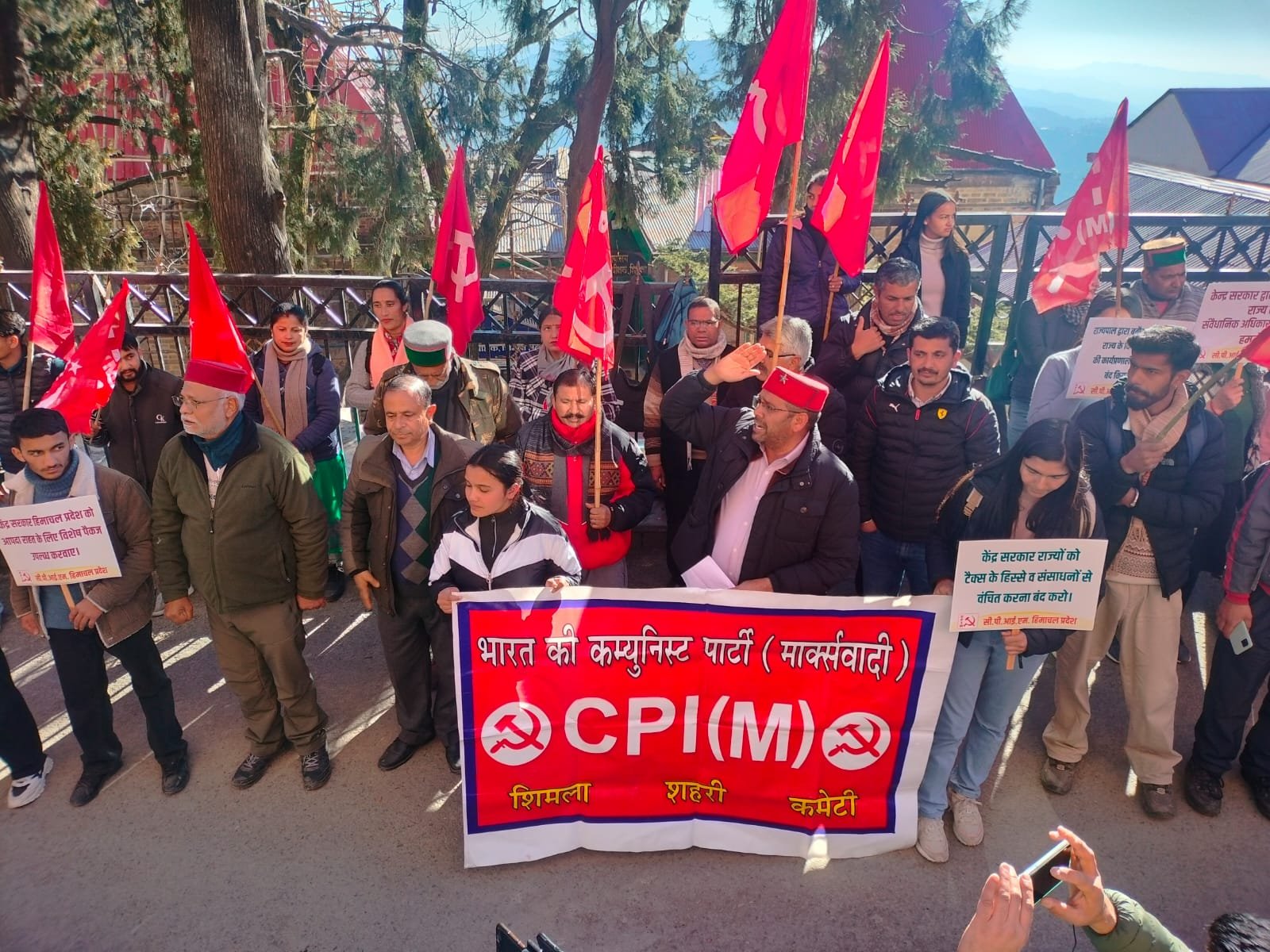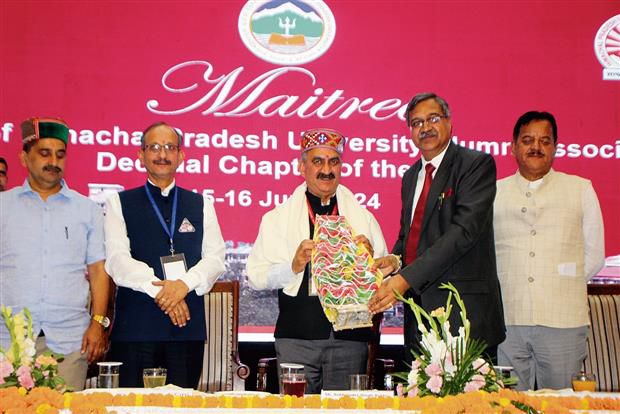TNR DESK
On the 8th of February 2024, in response to the invitation by the CPI(M) Central Committee, a powerful demonstration was held outside the Shimla District Magistrate’s office by the CPI(M).
Hundreds of party activists gathered for the protest, vehemently opposing the Central Government’s policies destabilizing the Kerala state government. The demonstration highlighted concerns over the centralization of financial powers, reduction in financial assistance, and attempts to curtail state rights.
Speakers addressing the demonstrators accused the Modi-led central government of engaging in blatant discrimination against the CPI(M)-governed Kerala state.
They criticized the central government for misusing financial powers, adversely affecting all states, with Kerala being particularly targeted. The refusal to allocate Goods and Services Tax (GST) revenues to states in a 60:40 ratio, as well as the imposition of additional taxes and surcharges, have severely impacted Kerala’s ability to implement welfare and development programs.
Moreover, the protest highlighted the authoritarian tactics employed by the Modi government against opposition leaders in non-BJP states, including arbitrary arrests by agencies like the CBI and ED. Kerala’s Governor, Arif Mohammad Khan, was criticized for aligning with the Modi government to destabilize the state government, disregarding the constitutional dignity of his office.
The protest also condemned electoral malpractice, citing the recent mayoral elections in Chandigarh where electoral officials, allegedly under BJP influence, manipulated results, undermining democratic values and the constitution.
Additionally, the demonstrators demanded immediate relief measures for Himachal Pradesh, which suffered heavy losses due to last year’s floods. Despite public demands, the central government refused to declare the situation a national disaster or provide any financial assistance to the state, revealing the BJP’s anti-people stance.
The protest concluded with a call to strengthen federal structures, restore financial assistance to states, and ensure democratic principles are upheld. Participants included various party members from state to local levels, underscoring widespread discontent with the central government’s policies.






